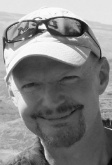Contact
Timothy James LeCain is a professor of history whose work focuses on the ways in which the New Material Humanism can help us to better understand the past and future of humans and the planet. His latest book, The Matter of History: How Things Create the Past (Cambridge University Press, 2017), challenges the conventional lines drawn between human culture and nature. LeCain's first book, Mass Destruction, won the 2010 best book of the year award from the American Society for Environmental History and was chosen as an Outstanding Book of the Year by Choice, the review publication of the American Library Association.
He has published numerous articles, op-eds, and reviews, and has presented invited lectures around the world, including in recent years, China, South Africa, Chile, England, Sweden, Germany, Norway, and the Czech Republic. In 2017, he was a senior visiting fellow at the Oslo Center for Advanced Study, the preeminent Norwegian institution for interdisciplinary academic research, where he collaborated with the archaeologist and theorist Björnar Olsen on the project After Discourse. He was previously a fellow at the Rachel Carson Center from 2011 to 2012, where he did much of the research that shaped his current thinking and The Matter of History. LeCain is currently a professor of history at Montana State University in Bozeman, Montana.
Previous RCC Research Project: Hybridity, Techno-Symmetry, and Bio-Indicators: A Comparative History of Landscape, Culture, and Technology in Japanese and American High Modernist Copper Mining (pdf, 9 KB)
Film Interview with Timothy LeCain
Selected Publications:
- The Matter of History: How Things Create the Past. Cambridge, UK: Cambridge University Press, 2017.
- “Copper and Longhorns: Material and Human Power in Montana’s Smelter Smoke War, 1860–1910.” In Mining North America, 1522–2012: An Environmental History, edited by John McNeill and George Vrtis, 166–90. Berkeley: University of California Press, 2017.
- “Technology and the Environment.” Oxford Research Encyclopedia of American History, available online at american.oxfordre.com, 2017.
- “The Persistence of Things: Copper and the Evolution of Space in Modernist America and Japan.” Jahrbuch für Wirtschaftsgeschichte (Yearbook for Economic History) 57 (2016): 169–86.
- “Heralding a New Humanism: The Radical Implications of Chakrabarty’s Four Theses.” In “Whose Anthropocene? Revisiting Dipesh Chakrabarty’s ‘Four Theses,’” edited by Robert Emmett and Thomas Lekan, RCC Perspectives: Transformations in Environment and Society 2016, no. 2, 15–20. Republished in Eurozine (15 April 2016) and selected as the article of the month for May 2016.
- “Against the Anthropocene: A Neo-Materialist Perspective.” History, Culture, and Modernity 3 (2015): 1–28.


